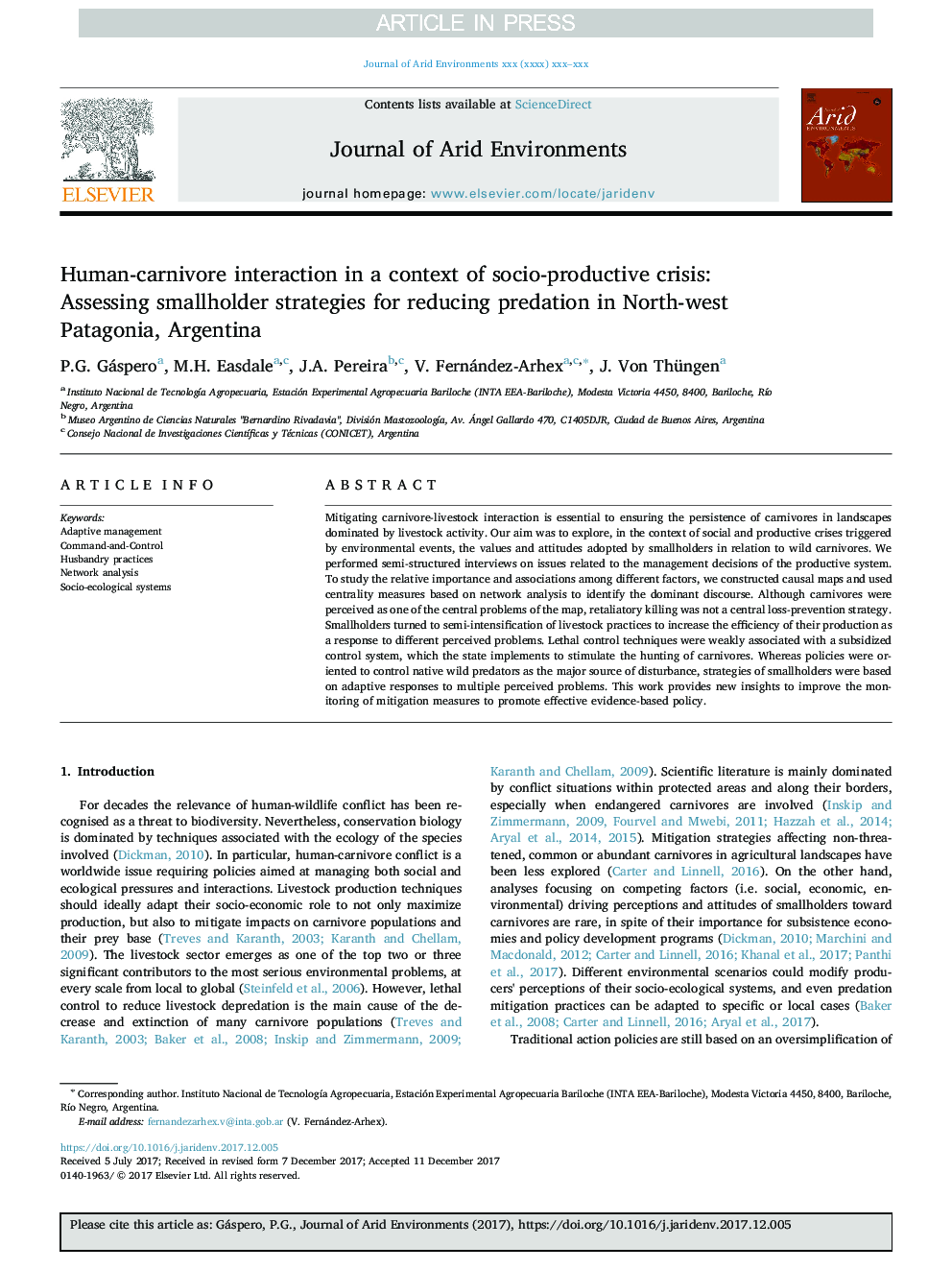| Article ID | Journal | Published Year | Pages | File Type |
|---|---|---|---|---|
| 8848582 | Journal of Arid Environments | 2018 | 7 Pages |
Abstract
Mitigating carnivore-livestock interaction is essential to ensuring the persistence of carnivores in landscapes dominated by livestock activity. Our aim was to explore, in the context of social and productive crises triggered by environmental events, the values and attitudes adopted by smallholders in relation to wild carnivores. We performed semi-structured interviews on issues related to the management decisions of the productive system. To study the relative importance and associations among different factors, we constructed causal maps and used centrality measures based on network analysis to identify the dominant discourse. Although carnivores were perceived as one of the central problems of the map, retaliatory killing was not a central loss-prevention strategy. Smallholders turned to semi-intensification of livestock practices to increase the efficiency of their production as a response to different perceived problems. Lethal control techniques were weakly associated with a subsidized control system, which the state implements to stimulate the hunting of carnivores. Whereas policies were oriented to control native wild predators as the major source of disturbance, strategies of smallholders were based on adaptive responses to multiple perceived problems. This work provides new insights to improve the monitoring of mitigation measures to promote effective evidence-based policy.
Keywords
Related Topics
Physical Sciences and Engineering
Earth and Planetary Sciences
Earth-Surface Processes
Authors
P.G. Gáspero, M.H. Easdale, J.A. Pereira, V. Fernández-Arhex, J. Von Thüngen,
